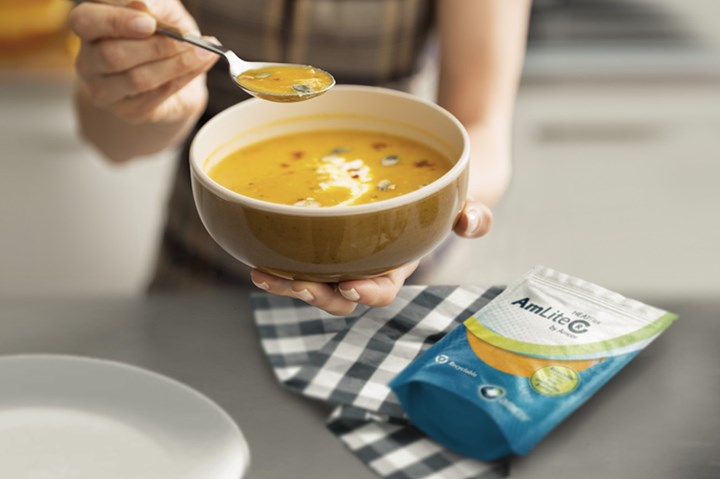First Recyclable Retort Pouch
Starting with cat food, Amcor and Nestlé are launching a breakthrough in recyclable packaging that will improve the environmental footprint of consumer packaging up to 60%.
What is said to be the world’s first recyclable retort pouch is being launched for pet food commercially by Switzerland’s Nestle. The product was slated to appear in stores in the Netherlands in October 2020. It marks the start of a collaboration between , Plymouth, Mich., and Switzerland’s Nestle to tackle one of the biggest challenges facing the industry—the inability to recycle retort flexible packaging. Standard retort pouches are made of a mixed-material structure-typically layers of PET, aluminium foil, and PP, which is not recyclable anywhere in the world today.

The new high-barrier, high-heat resistant packaging is based on Amcor’s AmLite HeatFlex Recyclable all-polyolefin solution launched in 2019. Amcor’s R&D team successfully replaced the PET layer of the original AmLite packaging with a breakthrough high-barrier OPP film. As previously reported, the barrier is provided by a micro-thin coating of the Amcor’s Ultra SiOx barrier technology (basically, it’s like a micro-thin layer of glass applied to the PP).
In the new packaging, Amcor’s barrier coating technology delivered a replacement for aluminum, but the more recent innovation was the development of a PP film that delivers high-performance for heat processing. The result is a pouch that can withstand the pressures of heat-sterilization and provide a reliable barrier to oxygen and bacteria, keeping food safe without refrigeration for a long shelf life.
The partners collaborated during the product development process, testing for heat resistance, machine performance, shelf-life and recyclability in the real world. The pouch has been independently tested by cyclos-HTP and confirmed to be recyclable. It fits collection systems in several European countries, and the list of countries is expected to grow, as plastics recycling streams are being expanded.
In replacing metal cans, flexible retort packaging can improve the carbon footprint of hundreds of consumer products thanks to its light weight, resource efficiency, ease of transportation and by minimizing food waste. Adding recyclability to its list of properties will further improve the environmental footprint of this packaging solution, which has a reduced carbon footprint of up to 60%.
Related Content
-
At NPE, Cypet to Show Latest Achievements in Large PET Containers
Maker of one-stage ISBM machines will show off new sizes and styles of handled and stackable PET containers, including novel interlocking products.
-
For Extrusion and Injection-Blow Molders, Numerous Upgrades in Machines and Services
Uniloy is revising its machinery lines across the board and strengthening after-sales services in tooling maintenance, spare parts and tech service.
-
Get Color Changes Right In Extrusion Blow Molding
Follow these best practices to minimize loss of time, material and labor during color changes in molding containers from bottles to jerrycans. The authors explore what this means for each step of the process, from raw-material infeed to handling and reprocessing tails and trim.





